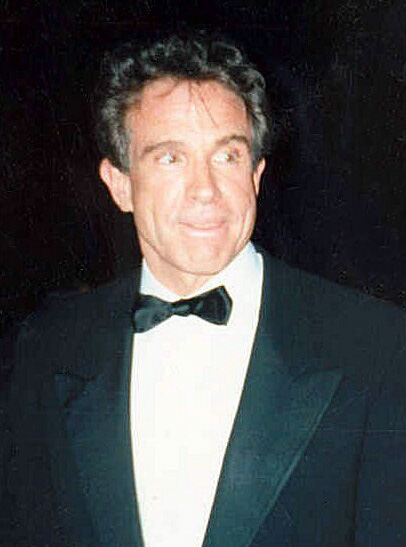 |
| Warren Beatty at the Academy Awards (Photo credit: Wikipedia) |
Warren Beatty and Faye Dunaway, who were co-stars in Bonnie and Clyde half a century ago, were tasked with announcing who won for Best Picture. At first they said it was La La Land. Then, as the group associated with the film gathered to accept their award, they were told there's been a terrible mistake. Beatty was handed the wrong envelope, and that the Oscar actually went to Moonlight. So the Moonlight crowd came to the stage to accept their award.
Sounds like the election, doesn't it? La La Land led the popular vote, but Moonlight won it in the Electoral College.
Actually, Moonlight checks off all the boxes for a Motion Picture Academy that had been taking heat for its lack of diversity. It was a critically-acclaimed, independently-made film about a young and black gay male, with its cast populated mostly by African-Americans. It also won two additional Oscars, including Maharshala Ali as Best Supporting Actor.
La La Land, an update on the classic Hollywood musical of yore, was about a good-looking young couple who fall in love and fight to save a jazz club. Anachronistic, yes. But that's what passes for escapist entertainment in President Trump's America. The film won six Oscars out of 14 nominations, including Best Director for Damienne Chezelle and Best Actress for co-star Emma Stone. So, despite having been screwed out of Best Picture, it wasn't a total loss.
Among the other major winners, Casey Affleck won Best Actor for the drama Manchester By The Sea. Viola Davis gave another passionate speech as she accepted her Best Supporting Actress Oscar for Fences, written by August Wilson.
Since this was the first Oscars to be held since Trump took office, you might have expected the ceremony to focus a little on politics. And you'd be right. Host Jimmy Kimmel skewered the new President every chance he got. Director Asghar Ferhadi accepted his Oscar for "The Salesman" as Best Foreign Film through a surrogate, who explained that he couldn't pick it up in person because he was boycotting the ceremony due to Trump's travel ban on countries like his native Iran. But the expected tsunami of Trump-bashing never really materialized.
Kimmel, who had already hosted the Emmy Awards a few months ago, is part of a trend of TV networks' handing off hosting duties of the award shows they televise to its late-night talk show hosts: Jimmy Fallon (Golden Globes), James Corden (Grammys) and Stephen Colbert (2017 Emmys). This time around, the Oscars looked like a greatest-hits package from Jimmy Kimmel Live: the 'feud' with Matt Damon, "Hate Tweets", and stunts such as dropping munchies on the audience and a tour bus full of unsuspecting folks who walked in on an awards show. Otherwise, Kimmel did a heck of a job.
Yes, this year's Academy Awards will be forever remembered for the Best Picture mixup, which will certainly lead to rules changes and possibly a new accounting firm (PriceWaterhouseCoopers having tabulated the ballots for as long as anyone can remember). Now we can all go back to caring about the latest blockbuster featuring some kind of apocalypse or comic-book superhero, which will be shown on a streaming service near you in a few months.


